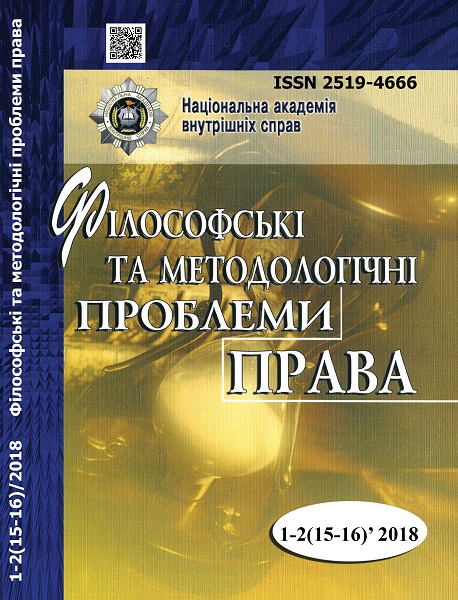Justice as a Remedy and Aim in Correction and Resocialization of Convicted: Philosophical Thinking
Abstract
The article consists of two parts: in first part the content and forms of justice are analyzed through the prism of the legal philosophy, the connection of ethics and jurisprudence concerning the approach to justice is observed, the attempt is made to highlight justice as one of the grounds of law. In the history of appearing and development of the state and legal systems the question of justice was the main in assessing the activities of government and rulers during no less than the last five thousand years. In philosophy and philosophy of law justice is an object of the analyzing and assessment at least for two and a half thousand years. The authors trace the evolution of justice understanding from Socrates to the present day. The second part of the article is devoted to the problem of justice in the correction and resocialization of convicted for crimes commission and imprisoned in penitentiary institutions.The authors reject the formal-dogmatic approach to the execution of punishment when only one element of punishment – retribution -is actually protruded, and the other two – correction and resocialization –are formally presented only. To implement these two elements, it is necessary to shift the focus from the legal basis of correction and resocialization to psychological and pedagogical ones, and to provide an impact on the internal psychological (mental) side of convicted, realizing their guilt by themselves and encourage them to sincere repentance. In order for this to be achieved, it is necessary that punishmentand the regime of its serving be accepted as fairby convicted; and convicted should be instilled with a sense of justice as a penitential goal.
Downloads
Abstract views: 313 PDF Downloads: 361
Copyright (c) 2019 Philosophical and Methodological Problems of Law

This work is licensed under a Creative Commons Attribution-NonCommercial-NoDerivatives 4.0 International License.
- Authors reserve the right to authorship of their own work and transfer to the magazine the right of the first publication of this work under the terms of the Creative Commons Attribution License, which allows other persons to freely distribute published work with mandatory reference to authors of the original work and the first publication of an article in this magazine.
- Authors have the right to enter into separate additional agreements on non-exclusive dissemination of the work in the form in which it was published in the journal (for example, to post an article in the institution's repository or to publish as part of a monograph), provided that the link to the first publication of the work in this journal is maintained.
- The journal's policy allows and encourages the posting of articles by authors on the Internet (for example, in electronic storehouses of institutions or on personal websites), both before the submission of this manuscript to the editorial office and during its editorial processing, as this contributes to the creation of a productive scientific discussion and positively affects the efficiency and dynamics of citing the published work.




